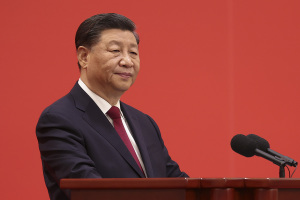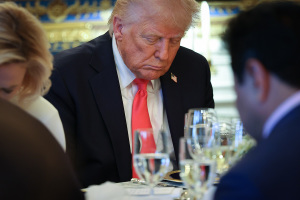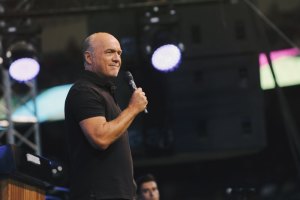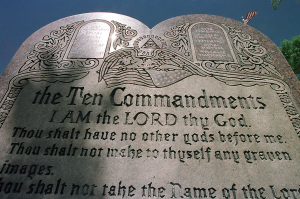Protesters Torch Offices in Egypt After President Morsi Issues Himself Unlimited Powers
Angry mobs in Egypt have torched the offices of the ruling Muslim Brotherhood government in several cities, protesting against President Mohammed Morsi's decision to give himself sweeping new powers.
On Thursday, Morsi announced that under the new decree, his decisions cannot be revoked by any authority in the country, the judiciary included. Many have called this a "coup," sparking a new wave of protests in a country that has seen great violence in recent years.
Egypt's state TV reported that offices were torched in the cities of Port Said, Alexandria and Ismailia, while three people have been admitted to a hospital in Cairo after they were injured in street clashes in the nation's capital.
During the 2011 uprising, which toppled former President Hosni Mubarak, mobs regularly clashed with government forces, and hundreds of Coptic Christians demanding religious freedom were killed by authorities and Muslim mobs. The democratic election earlier this year, which saw Morsi elected to power, had people hoping it would bring some stability and peace to the African nation, but some, like Mohamed ElBaradei, a Nobel Peace Prize winner, have said the president has appointed himself "Egypt's new pharaoh," and called the decree "a major blow to the revolution that could have dire consequences."
Morsi was recently praised by the international community after he helped spearhead a truce between the Israeli government and the Palestinian party Hamas, which have been exchanging rockets since last Wednesday, resulting in the deaths of hundreds. The truce, which came into effect on Thursday, has so far held up and there has been a cease-fire between the two-sides, though tensions on the borders remain high.
Morsi issued the decree to Egypt on that same day, sparking some to accuse him of using the occasion for other plans. Besides giving himself almost unlimited power, his decree also allows him to appoint a public prosecutor for a fixed term of four years, and supporters of President Mubarak who played a role in trying to suppress last year's revolution will be brought to trial.
The BBC noted that the decree also allows Morsi "to take any measures he sees fit in order to preserve the revolution, to preserve national unity or to safeguard national security."
President Morsi's supporters have reacted positively to the decree, and thousands were celebrating in front of the Egyptian High Court in Cairo on Thursday night, reportedly chanting "the people support the president's decisions."
Mahmoud Ghozlan, a spokesman for the Muslim Brotherhood party, said that the decree was "revolutionary and popular."
However, many did not agree. "This is a coup against legitimacy... We are calling on all Egyptians to protest in all of Egypt's squares on Friday," said Sameh Ashour, head of the lawyers' syndicate and a leader of the liberal opponents.
Morsi is expected to make a direct statement to the people of Egypt about his decree in the coming days.



























